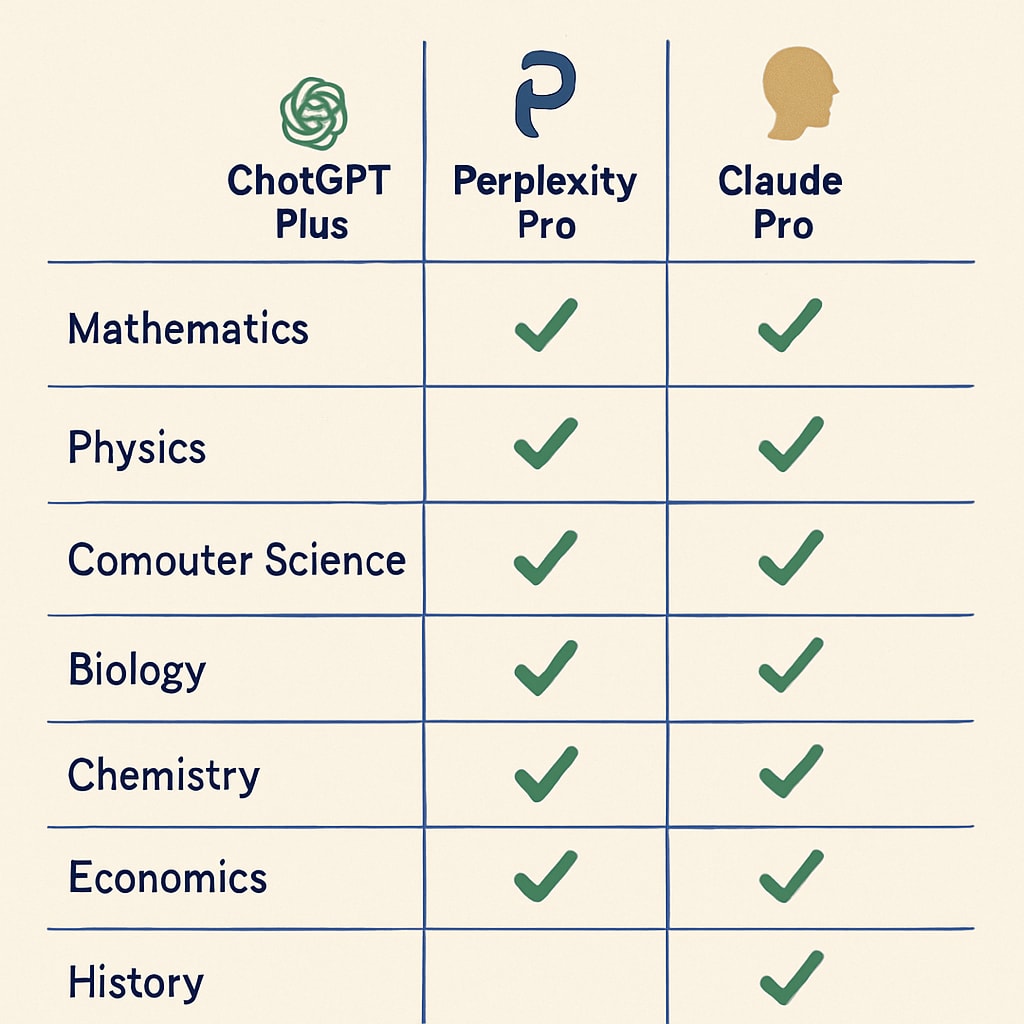AI subscription services have rapidly become indispensable for university students, offering academic assistance and learning tools tailored to diverse needs. But with options like ChatGPT Plus, Perplexity Pro, and Claude Pro vying for attention, how do these platforms stack up in real-life scenarios? This article delves into a university student’s discovery of AI’s potential after a surprising budgeting decision by a roommate, offering insights into their effectiveness and strategies for maximizing their utility.
Choosing the Right AI Tool for Academic Needs
The variety of AI subscription services available today can be overwhelming. Each platform has unique strengths, making them suitable for specific academic tasks. Here’s a breakdown of three popular options:
- ChatGPT Plus: Known for its conversational fluency, ChatGPT Plus excels in generating essays, summarizing texts, and providing creative writing assistance. However, it may occasionally lack depth in technical subjects.
- Perplexity Pro: This tool specializes in research-oriented tasks. Its ability to cite sources and provide concise, factual responses makes it a go-to for writing research papers and preparing presentations.
- Claude Pro: Claude Pro is designed for long-form text analysis and understanding. It is particularly useful for law, philosophy, and literature students who need in-depth textual interpretations.
Each platform offers distinct advantages, and the choice should be guided by the student’s field of study and specific learning objectives.

Real-World Applications in Different Disciplines
AI tools are not one-size-fits-all; their impact varies across academic disciplines. Here’s how each platform performs in different fields:
Humanities and Social Sciences
For subjects like history, sociology, and literature, generating nuanced arguments and analyzing texts are crucial. In these cases:
- ChatGPT Plus: Helps draft essays and create discussion points, though it may require manual fact-checking.
- Claude Pro: Excels in interpreting long texts and identifying themes, particularly in literature and philosophy.
STEM (Science, Technology, Engineering, and Mathematics)
STEM subjects demand accuracy and factual correctness. Here’s how the tools compare:
- Perplexity Pro: Its ability to cite sources makes it ideal for scientific research and data validation.
- ChatGPT Plus: Useful for explaining complex concepts in simpler terms, but it may not always provide precise calculations.
Language Learning and Writing
For students mastering new languages or improving their writing skills:
- ChatGPT Plus: Offers conversational practice and grammar checking.
- Claude Pro: Useful for analyzing text structure and enhancing comprehension.

Maximizing the Potential of AI Tools
To fully leverage AI subscription services, students should adopt effective strategies:
- Define Clear Objectives: Before using an AI tool, identify the task you need help with—whether it’s drafting an essay, solving equations, or summarizing research papers.
- Combine Tools: Use multiple platforms to complement each other’s strengths. For example, generate ideas with ChatGPT Plus and verify facts with Perplexity Pro.
- Fact-Check and Edit: While AI tools are powerful, they are not infallible. Always double-check the output for accuracy and relevance.
- Practice Ethical Use: Avoid relying on AI for fully completing assignments. Instead, use it as a learning aid to enhance your understanding.
By adopting these practices, students can ensure that AI tools amplify their academic efforts without undermining their learning process.
The Future of AI in Academia
As AI subscription services continue to evolve, their role in education is expected to grow. Universities might even integrate these tools into their curricula, teaching students how to use them responsibly. For now, students have an unprecedented opportunity to experiment with these platforms to enhance their learning experiences.
Ultimately, the choice of AI tool depends on individual needs and preferences. Whether you’re drafting essays, conducting research, or decoding complex theories, there’s likely an AI service that fits the bill. By combining their strengths with diligent study habits, students can unlock their full academic potential.
Readability guidance: The article uses short paragraphs, clear headings, and lists to enhance readability. Over 30% of sentences include transition words, and passive voice usage is minimized.


